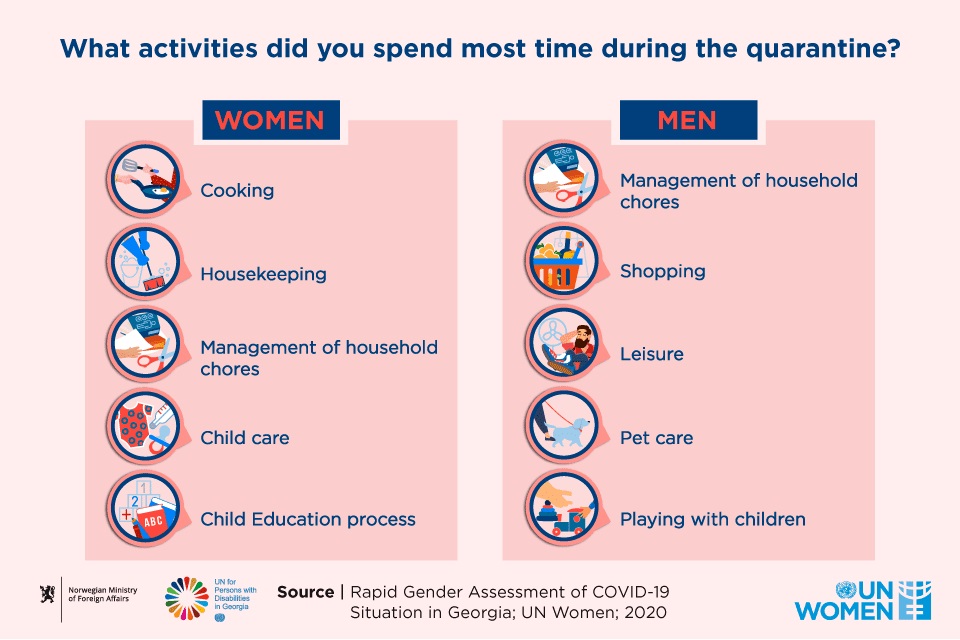COVID-19 exacerbates women’s vulnerabilities and gender inequalities in Georgia
Date:

Across every sphere, from health to the economy, security to social protection, the impacts of COVID-19 are exacerbated for women and girls simply by virtue of their sex. The pandemic is further exposing and amplifying the gendered impact of pre-existing structural inequalities in social, political and economic systems.
To document how women’s and girls’ lives are changing in the face of COVID-19 and ensure that gender considerations are properly addressed in COVID-19 preparedness and response efforts by national and international partners, UN Women conducted a rapid gender assessment (RGA) of the COVID-19 situation in Georgia.
The RGA analysed the impact of the COVID-19 pandemic and main challenges faced by women and men in Georgia, including its effects on their livelihood and already existing vulnerabilities. The objective of the initiative was to make the response as well as preparedness planning gender aware and responsive.
“Women and girls must be at the heart of all resilience and recovery efforts,” stresses UN Resident Coordinator Sabine Machl. “By generating data on the impact as well as different needs of men and women stemming from the COVID-19 crisis, we hope that the study findings will inform relevant preparedness and recovery efforts by the United Nations Country Team as well as national and international partners.”
The study revealed that as a result of the pandemic, a third of the employed population have lost their jobs, while 78 per cent of women report that if restrictive measures related to the spread of COVID-19 continue, they would struggle to cover basic expenses. The study further found that the lockdown and closures of schools and kindergartens increased the burden of unpaid care work on women and girls as they are dedicating more time to childcare, cleaning and cooking than usual. In the context of the pandemic, the increased demand for care work is further deepening already existing gender inequalities in the division of household chores and further contributing to time poverty faced by women in Georgia.
To deliver on the pledge to leave no one behind - the central and transformative promise of the 2030 Agenda for Sustainable Development - the RGA further focused on assessing the situation and needs of women and girls with disabilities and women caregivers of disabled persons. The study found that the COVID-19 pandemic has exacerbated the situation for women and girls with disabilities, who have an increased risk of exposure to and complications from COVID-19 and are disproportionally affected by the negative impacts of quarantine measures. The pandemic and the measures to stop its spread have amplified problems with infrastructure, as many women and girls with disabilities have lost access to the caregivers they require to move around. Movement for blind people appears to have been particularly constrained, given the extensive reliance on touch for mobility.
The key elements of the study methodology were designed by UN Women Headquarters as part of a broader COVID-19 RGA initiative in the Europe and Central Asia region. The assessment was conducted under the “Good Governance for Gender Equality in Georgia” project supported by the Ministry of Foreign Affairs of Norway; and the UN Joint Programme “Transforming Social Protection for Persons with Disabilities in Georgia” supported by the Joint SDG Fund.
The complete RGA report will be available by the end of June 2020.